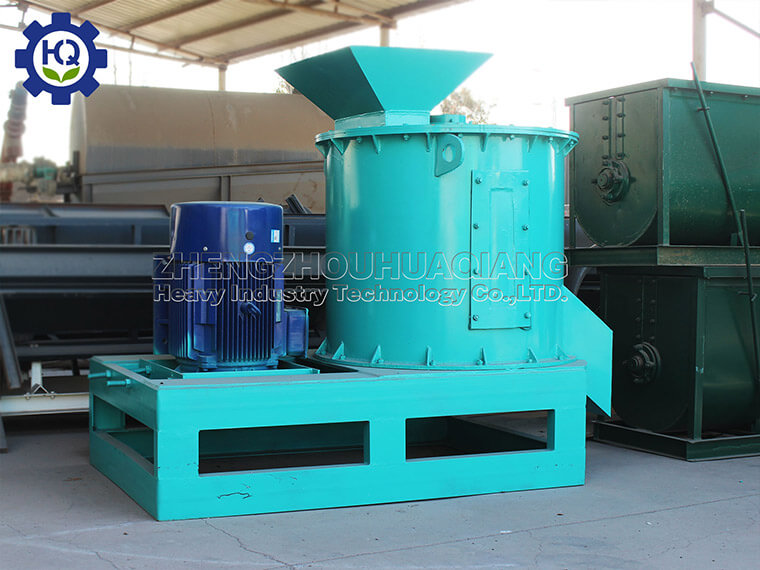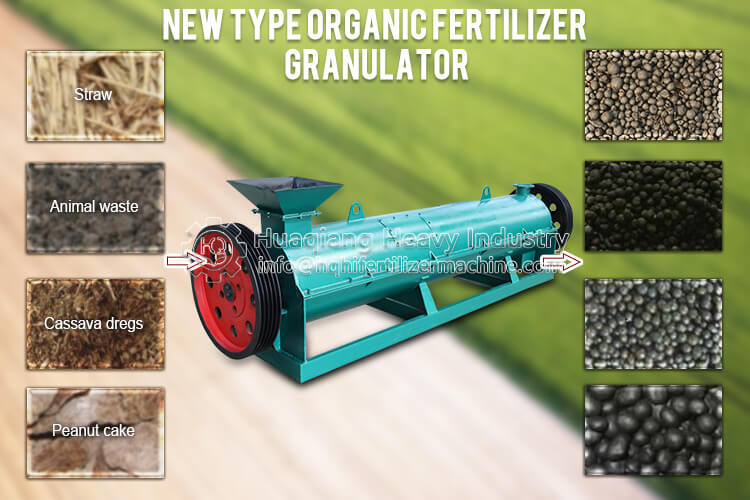The use of cow dung as fertilizer in the planting process is to provide the nutrients needed for crop growth. However, when using cow dung in the planting field, it should be noted that cow dung must be decomposed in the organic fertilizer fermentation tank before being used as organic fertilizer. When it is decomposed at high temperature, it will kill the insect eggs and bacterial viruses in the cow dung. In addition, cow dung can be reused after fermentation and decomposition to avoid burning the roots due to heat.
For the production line of cow manure organic fertilizer, it is recommended to adopt aerobic fermentation treatment. It can be fermented with fermenting agent, which is better for crops. Mix cow manure with straw, sawdust, mushroom residue, etc. in an appropriate proportion (dung accounts for 80-90%, other accounts for 10-20%). 1 ton of material (about 2.5 tons of fresh material) plus 1 kg of fertilizer starter, diluted by 1 kg of fertilizer starter plus 5 kg of rice bran (or bran, corn flour and other substitutes), and then evenly scattered into the material pile. Pay attention to proper oxygen supply and pile turnover during fermentation, and control the temperature at 55-65 ℃. The moisture content of fermentation materials should be controlled at 60~65%.
The method for adjusting the moisture content of materials in the cow manure organic fertilizer production line: the moisture content of fermented cow manure and other livestock and poultry manure should be controlled at 40~65%. Moisture judgment: Grasp a handful of cow dung tightly, see the watermark but do not drip on the finger seam, and it is appropriate to disperse immediately after landing. The fermentation is slow with less water, and the ventilation is poor with more water. Therefore, we must grasp the water content. If the moisture is too high, straw, sawdust, mushroom residue, dry earth powder, etc. can be added. The method to judge whether the moisture is suitable or not: grasp a handful of materials tightly, see the watermark on the finger joint but do not drip, and disperse immediately after landing. Generally, the whole fermentation process can complete the complete deodorization of materials, fermentation maturity, insecticidal sterilization, etc. in 5-7 days.
Technical start-up temperature of cow manure production organic fertilizer production line. The startup temperature should be above 15 ℃ (it can be operated in four seasons, not affected by the season, and try to ferment indoors or in the greenhouse in winter), and the fermentation temperature should be controlled below 70-75 ℃.
Mix well and ventilate. The production of organic fertilizer by cow dung fermentation requires good (consumption) oxygen fermentation. Therefore, the oxygen supply measures should be increased during the operation process, so as to achieve uniform mixing, frequent turnover and ventilation. Otherwise, it will lead to anaerobic fermentation and odor, affecting the fertilizer effect.
Fermentation is complete. Generally, after 48 hours of cow dung accumulation, the temperature rises to 50~60 ℃, and it can reach more than 65 ℃ on the third day. Under this high temperature, it can be overturned once. Generally, there will be two times of high temperature above 65 ℃ in the fermentation process. The fermentation can be completed after two times of overturning, and the fermentation can be completed within a normal week. The material is dark brown, and the temperature begins to drop to normal temperature, indicating that the fermentation is complete.





